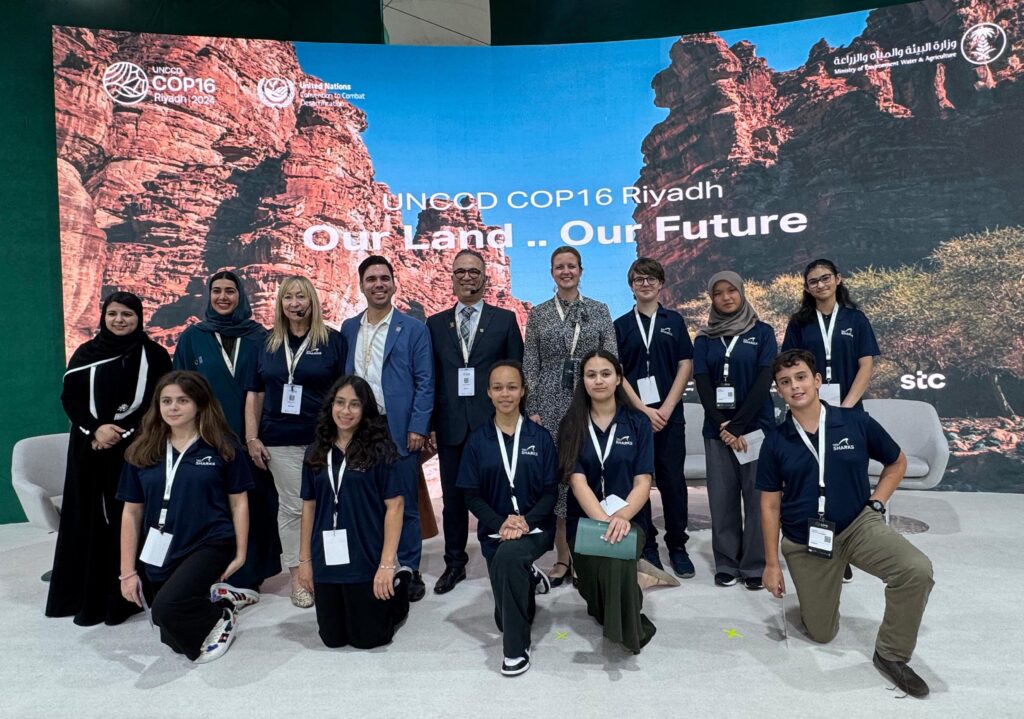
At the 16th Conference of the Parties (COP16) to the United Nations Convention to Combat Desertification (UNCCD), KAUST hosted a unique session, “Interactive Live Review: Advancing Land Restoration through Scientific Literacy” as part of the Science, Technology and Innovation Day. Organized in collaboration with the United Nations Development Program (UNDP), the event bridged the gap between high-level scientific research and public engagement, emphasizing the vital role of science in achieving global sustainability goals.
At the heart of the session was the SDG Collection: How Science Can Help Us Achieve the Sustainable Development Goals, an original initiative spearheaded by KAUST in collaboration with the UNDP Saudi Arabian office, and hosted by Frontiers for Young Minds. The collection features 17 articles, each dedicated to one of the United Nations Sustainable Development Goals (SDGs), all written by KAUST experts. These articles are reviewed by The KAUST School (TKS) students through the Frontiers for Young Minds initiative, which is known for its innovative approach to peer review by involving young children aged 8-15 years as reviewers of the articles. KAUST also serves as the ambassador and sponsor of the journal’s Arabic translations, ensuring accessibility to Arabic-speaking children across the globe.
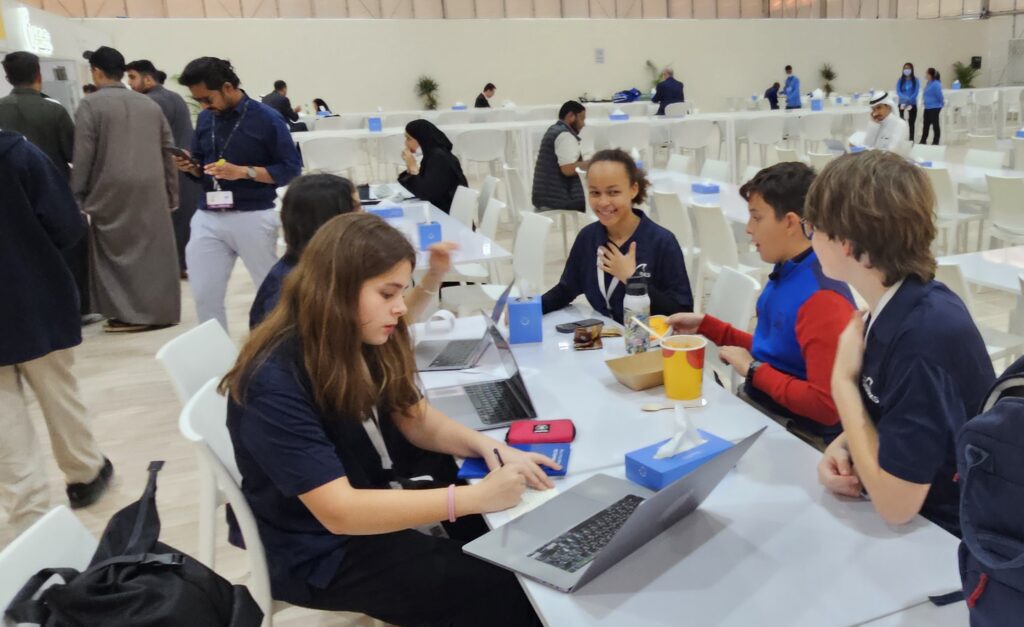
The event centered on a live review of a research article authored by Professor Salim Al-Babili, which explored innovative solutions for combating Striga, a parasitic weed that devastates crop yields in many African countries. The research aligns with SDG 1 (No Poverty) by improving farmers’ livelihoods, SDG 2 (Zero Hunger) by enhancing food security, and SDG 15 (Life on Land) by promoting sustainable land management. Professor Al-Babili presented to the audience and the TKS young reviewers panel, demonstrating how using a method called suicidal germination helps farmers manage Striga infestations effectively, allowing for healthier crops and more productive lands. The presented topic aligned closely with the objectives of COP16, which focuses on combating desertification and restoring degraded lands.
The TKS young reviewers critically evaluated the article, asked probing questions, and engaged directly with Professor Al-Babili in an open live review. This hands-on involvement showcased a groundbreaking model of university-school collaboration, where young minds are given a platform to engage with complex scientific challenges directly with scientists.
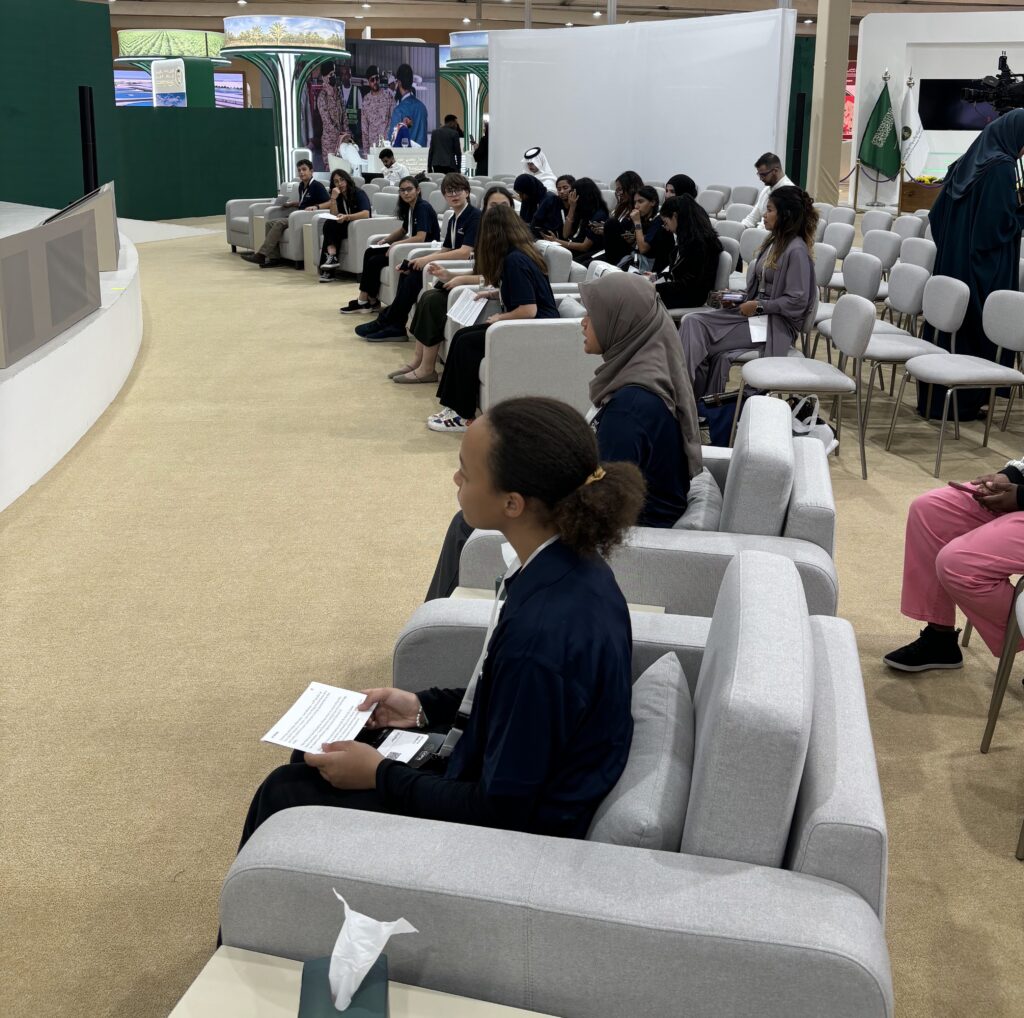
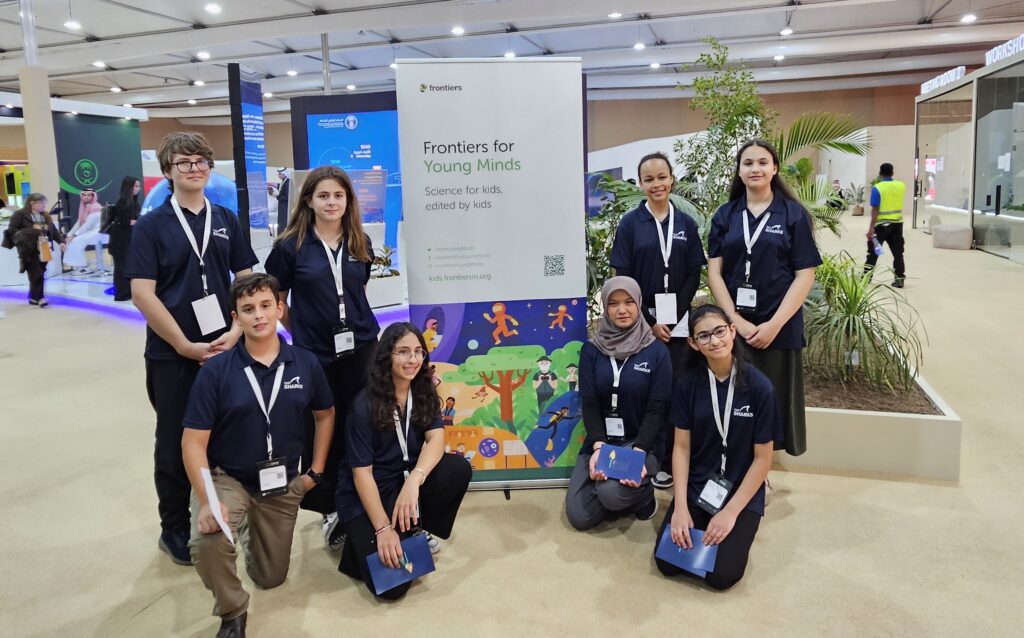
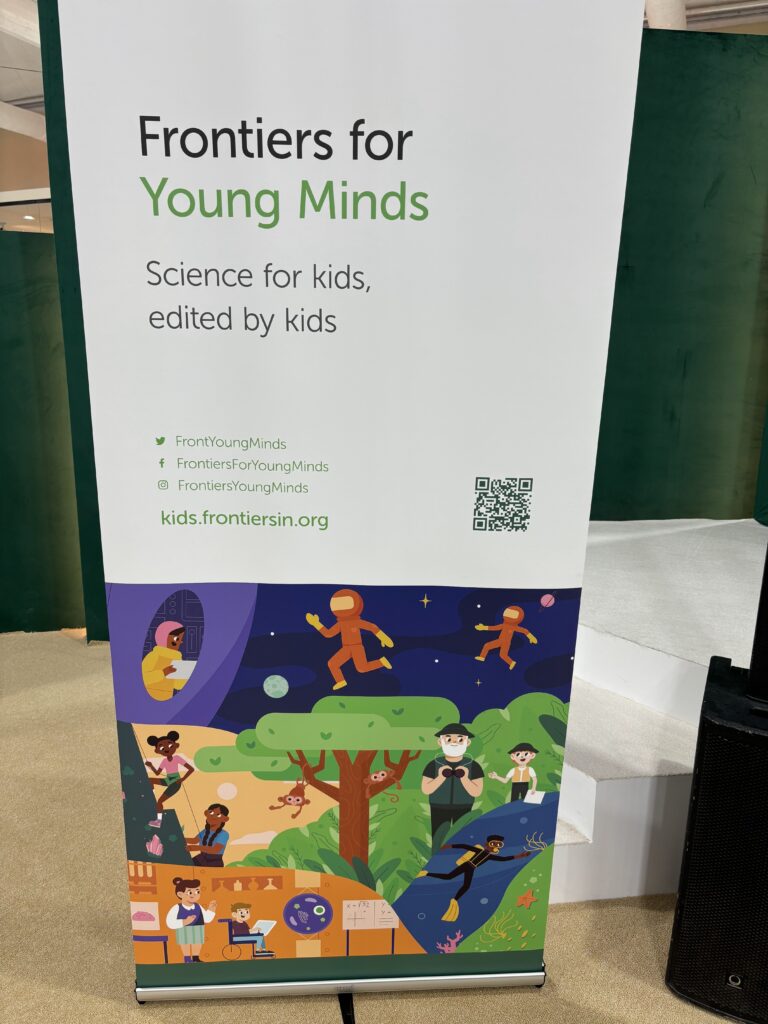
The event ended with a panel discussion moderated by Dr. Rúben Costa (KAUST Office of Sustainability) and Ms. Nicki Talbot (KEY), and with the participation of Princess Layan Al Saud, Program Analyst at UNDP; Ms. Laura Henderson, Head of Program at Frontiers for Young Minds; and Professor Al-Babili. The panel delved into the importance of sustainable land management for developing countries, the critical role of partnerships in scaling scientific solutions, and how engaging youth in science fosters a scientifically literate society.
The students thoughtful contributions earned them high praise from the audience and panelists alike, underscoring their potential as future leaders in sustainability.
While exploring the GreenZone, TKS students also had the unique opportunity to interact with Dr. Osama Ibrahim Faqeeha, Deputy Minister for Environment at the Saudi Ministry of Environment, Water, and Agriculture, who was pleased with the participation and engagement of local youth in the event.
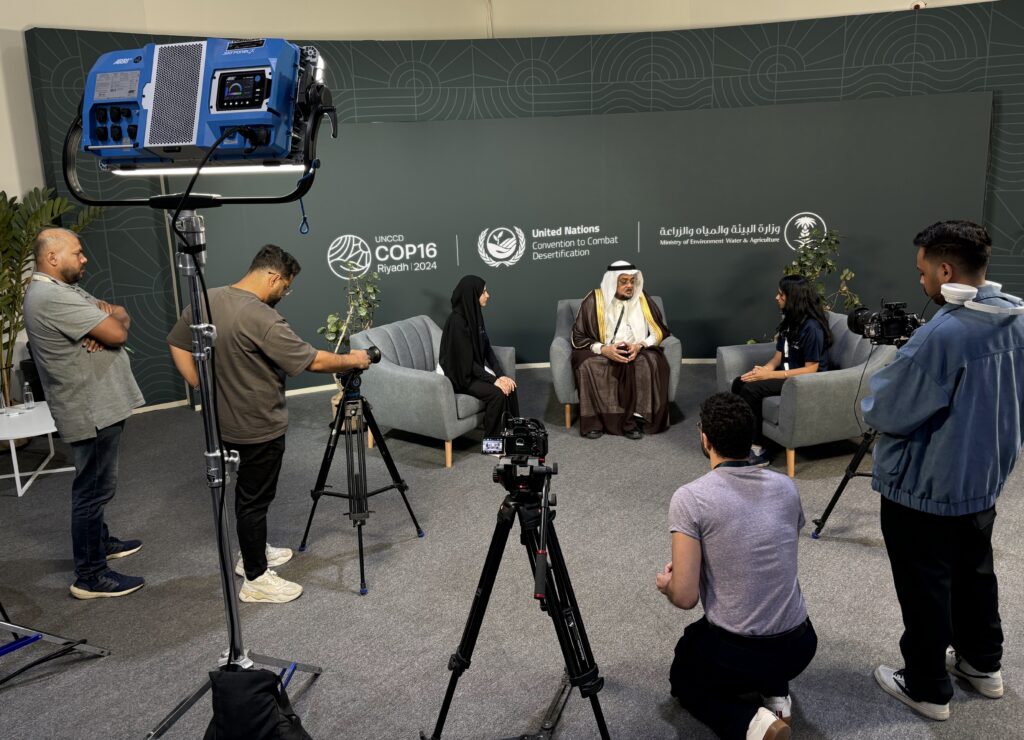
By combining the expertise of its researchers and staff with the enthusiasm of TKS students, KAUST demonstrated its extended reach as a unique university. The event highlighted not only the global impact of its research but also its commitment to engaging the public — especially youth — in scientific literacy. The overwhelmingly positive feedback from partners and attendees affirmed the success of the event as a model for showcasing why science is essential for society and sustainable development.

